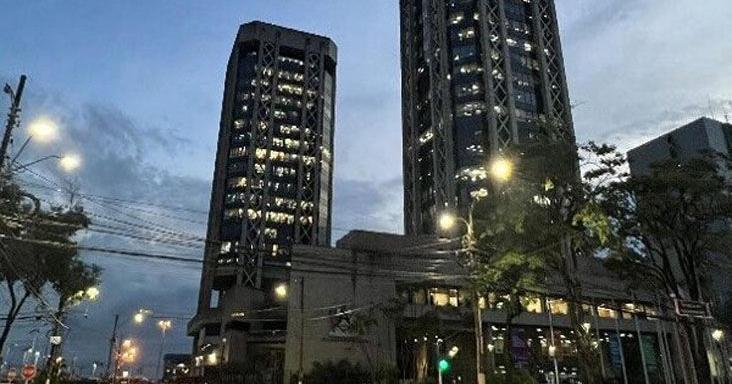On October 11, the Central Bank of Trinidad and Tobago published a note explaining the relationship between this country and the International Monetary Fund.
The note is the fourth instalment in a Public Education Series launched by the Central Bank.
We are re-publishing that note for the benefit of our readers.
Next week, a team from the Ministry of Finance and Central Bank will travel to Washington, DC to participate in the 2024 Annual Meetings of the International Monetary Fund (and World Bank).
But what exactly is this team going to do and why is Trinidad and Tobago a member of the IMF in the first place?
The Note explores these matters and is the fourth in the Public Education Series introduced by the Central Bank of Trinidad and Tobago to explain important economic concepts and monetary policy actions to a broad audience in simple, non-technical terms.
The Central Bank looks forward to comments and feedback, as well as topic suggestions for upcoming Notes, at info@central-bank.org.tt.
What is the IMF and when did
Trinidad and Tobago join?
The International Monetary Fund (the IMF/Fund) is one of the key global institutions aimed at promoting growth and development among its members. It was conceived at the Bretton Woods conference in July 1944 and began operations in March 1947. The IMF achieves its objectives through three strands of work—policy advice/surveillance, capacity development and lending. Trinidad and Tobago has been a member of the IMF since September 16, 1963, and there are currently 190 member countries and this will expand to 191 on October 21, 2024, when Liechtenstein formally joins the IMF. At the Board of Governors at the IMF, Trinidad and Tobago is currently represented by the Minster of Finance, Colm Imbert as governor, and Central Bank governor, Dr Alvin Hilaire as alternate governor. Dr Reshma Mahabir presently represents the country at the IMF Board in the capacity of alternate executive director.
Policy Advice/Surveillance
Perhaps the most visible of the Fund’s engagement with Trinidad and Tobago is the publication of the annual Article IV Staff Report. This Report is the product of economists from the IMF, who participate in an intensive two weeks of meetings with persons from various government ministries, private sector companies -with a key focus given the nature of the Trinidad and Tobago economy on energy companies, various business and sector associations, and the Central Bank. These meetings are complemented by a significant packet of data, which the IMF teams closely investigates to undertake their analysis and projections. Drawing upon the vast knowledge base of the Fund, and the experiences of other countries, the mission team couples the projections with recommendations to improve the overall economic prospects of the country, including through improved fiscal and monetary management, and enhanced governance and structural reforms. Another significant output is the Financial System Stability Assessment (FSAP), which is a joint product of the IMF and the World Bank aimed specifically at the financial sector. Trinidad and Tobago’s financial sector was examined in 2020, with a number of recommendations provided at addressing potential weaknesses in the financial sector while at the same time encouraging the continued development and public participation in the financial system. These Reports are, upon authorisation by the authorities, made available on the IMF’s website.
Capacity Development
The Fund provides an array of workshops, seminars, online and in-person training for government officials and particular groups of individuals such as journalists on key topics related to the various work streams of the Fund. Such topics include revenue management, balance of payments statistics, economic forecasting methodologies and public debt. While some of the in-person training is done at the IMF’s headquarters, this is complemented by training from the technical assistance centers. In the case of the Trinidad and Tobago and the wider Caribbean, the Barbados based Caribbean Regional Technical Assistance Centre (CARTAC) provides additional technical assistance which is funded not only by the IMF but also a wide range of donors from around the world.
In addition, members can request that the Fund examines and provides recommendations on specific topics. In the case of Trinidad and Tobago recent investigations have covered cybersecurity in financial institutions, and fintech regulation and legislation.
Lending
The IMF has a number of lending programs aimed at providing financing assistance to countries in need—including some specifically aimed at lower income countries, to promote resilience or precautionary arrangements. The release of funds is tied to the country meeting certain targets and benchmarks, which form part of a discussion between Fund staff and the authorities. At the present time, Trinidad and Tobago does not have any lending arrangements with the Fund.
In the past though, Trinidad and Tobago had two Stand-By Arrangements with the IMF in 1989 and 1990. Other Caribbean countries have been recent beneficiaries of Fund lending including Barbados and Suriname.
The IMF Meetings
The IMF has two formal meetings with its members a year: the Spring (April) and Annual IMF Meetings (October). At these meetings, the IMF gives an account of its stewardship to date, its plans for the future and shares its outlook on economic issues.
The Trinidad and Tobago team is able to ascertain these perspectives, interrogate Fund staff on these matters and coordinate with other members to further the country’s interests, including at meetings of the Constituency Grouping in which Trinidad and Tobago belongs and other developing countries in the Group of 24. The meetings also provide the opportunity to liaise with the many academics, businessmen, investors, bankers and civil society representatives from across the globe who congregate on these occasions.

